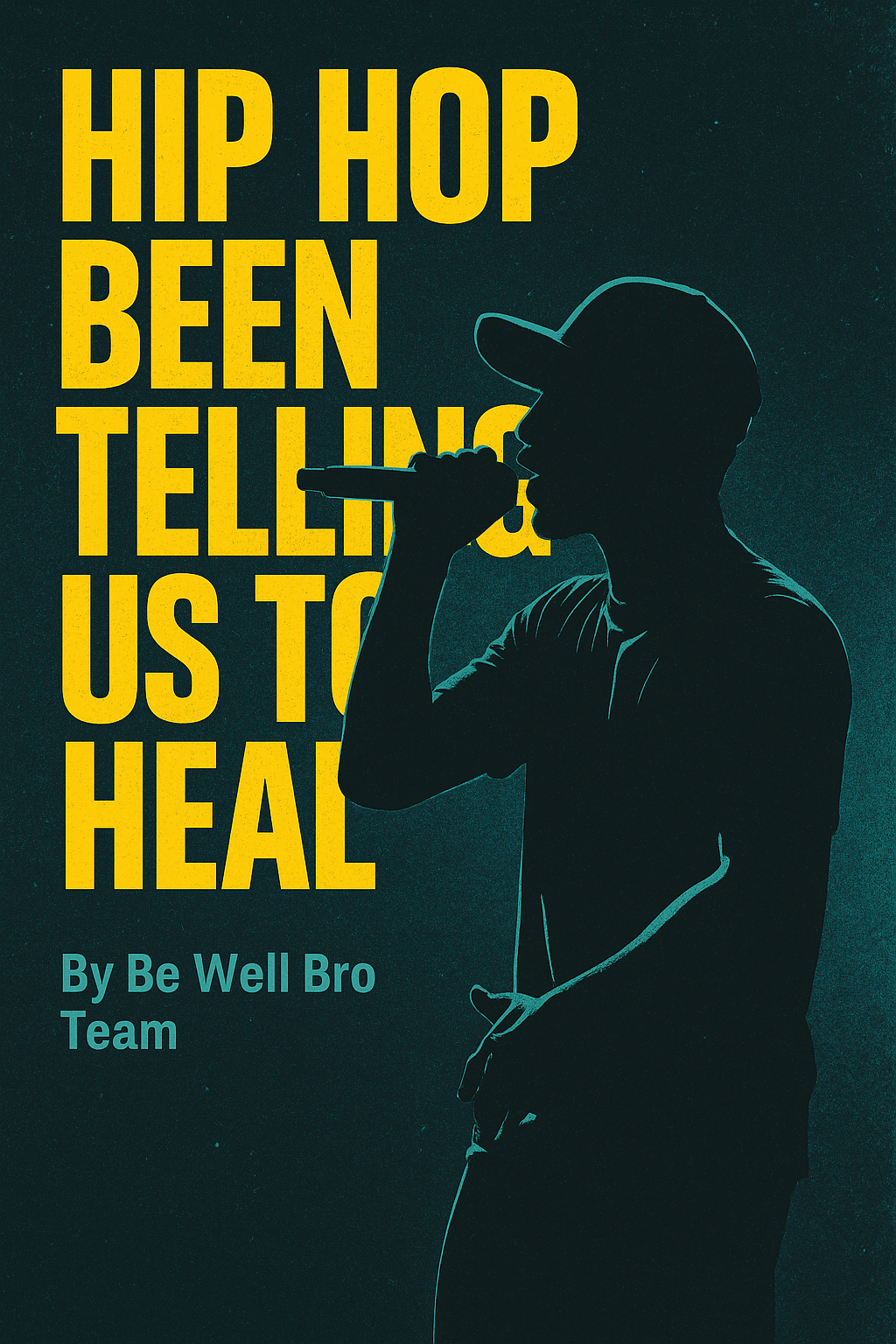Hip Hop Been Telling Us To Heal
Hip hop has always been a journal written in real time. A survival guide scribbled in rhyme and rhythm. While the headlines usually chase the shine, anybody listening closely can tell you the culture has also been broadcasting grief, loneliness, and the quiet fight just to make it another day.
Back in the ’90s, Biggie’s final words on (Ready to Die) drifted out like a last phone call for help. The Geto Boys had already told us what it felt like when paranoia steals your nights (Mind Playing Tricks on Me) hit like a diagnosis long before most of us had the language for depression. Scarface, Pac, DMX let every bar carry the honesty of men who were stumbling, naming their demons out loud. They weren’t “weak.” They were trying to breathe in a world pressing in on all sides.
Hip hop didn’t stop there. In the 2000s, Joe Budden and Blu spit bars that sounded like therapy sessions, while Kid Cudi changed the game by putting sadness, alienation, and depression on a main stage and calling it cool to feel. Kendrick would take it further, staring in the mirror on (U) peeling layers off the myth of greatness until only a man drowning in self‑doubt was left.
By the time Logic wrote an actual hotline into his hook, or Juice WRLD and XXXTentacion mourned their pain over airy beats, the message was undeniable: the next generation wasn’t whispering anymore. They were yelling it out loud. I'm hurting. I want help. When Mac Miller(RIP) and Big Sean name‑checked therapy, when Chance and G Herbo spit about PTSD, hip hop officially joined the conversation mental health professionals had been too slow to invite us into.
This is the quiet legacy of hip hop: long before “awareness month” hashtags, the music was already serving as the diary and the counselor, the warning and the medicine. The bloc's first group therapy session was a cypher. The earliest cries for help were 16 bars.
And through all of the tears on tracks, confessions tucked inside hooks the culture never abandoned hope. Kendrick promised (We gon’ be alright). Common reminded us that (The Light) is what we’re still reaching for. And LaRussell, one of the clearest voices of now, sharpened the reminder:
“Heal for your daughter, heal for her momma, heal for yourself. If you don’t heal you, then you can’t heal anybody else.”These aren’t just songs. They’re blueprints. Street psalms for Black and Brown men who’ve too long been trapped behind the mask of “I’m good.” It’s time to retire the mask. To admit the pain. To build a new language for healing.
Hip hop gave us the soundtrack. All we have to do now is listen.





